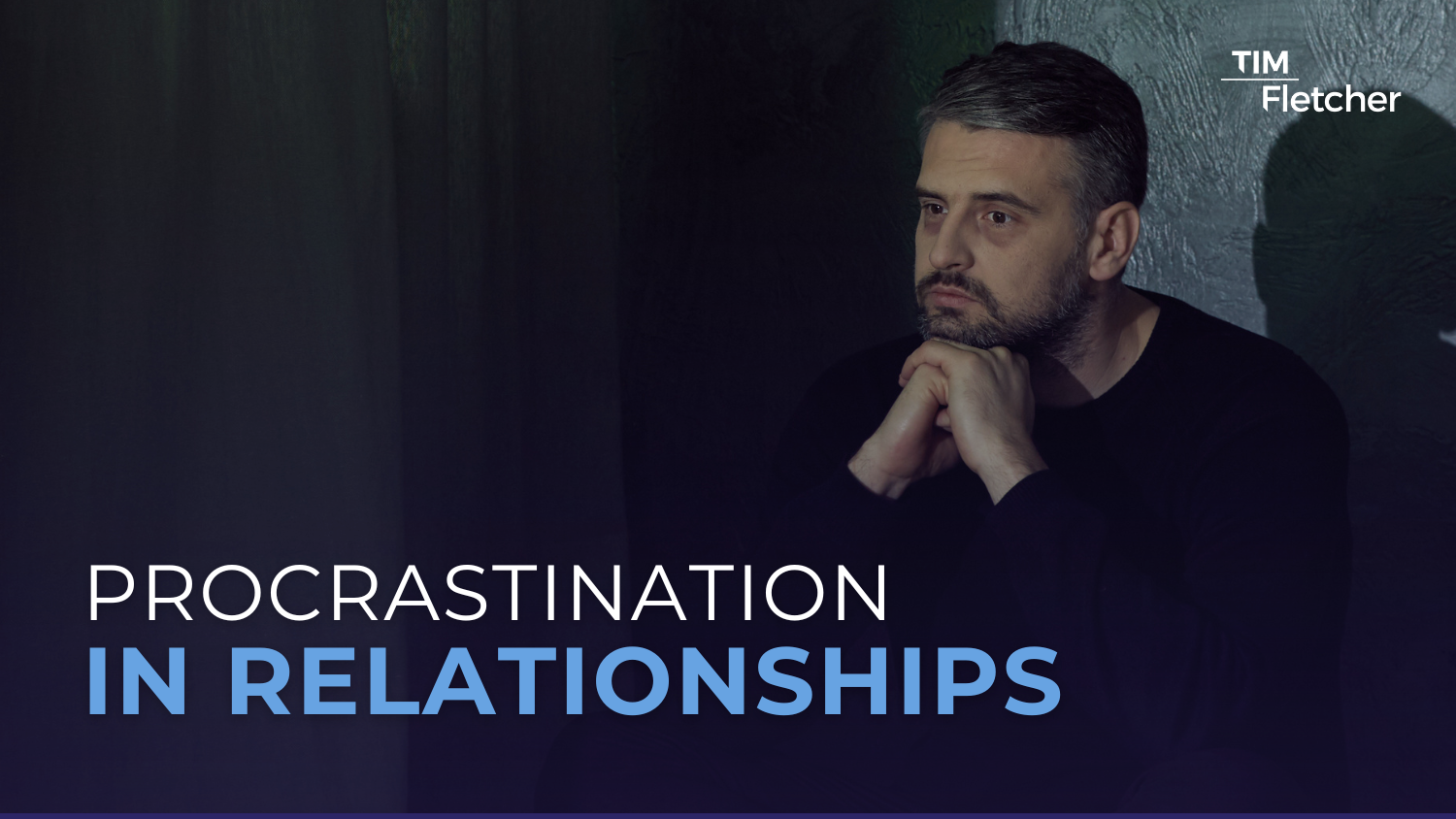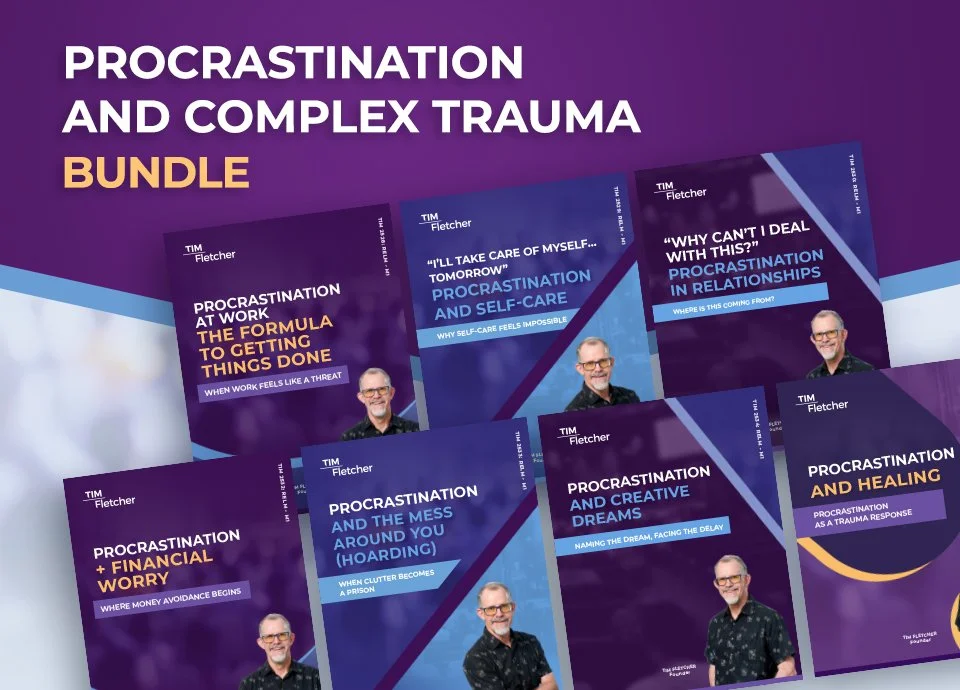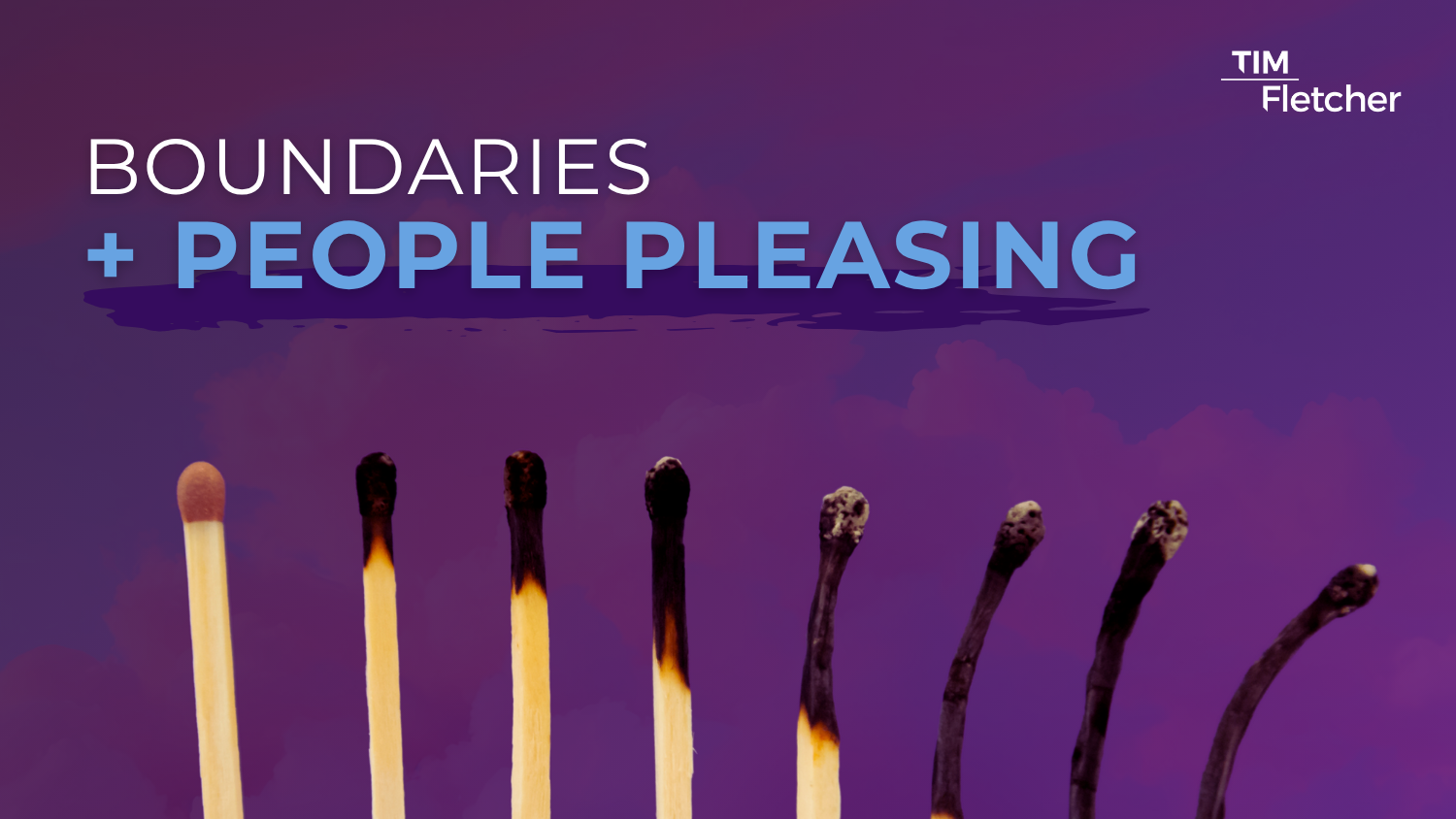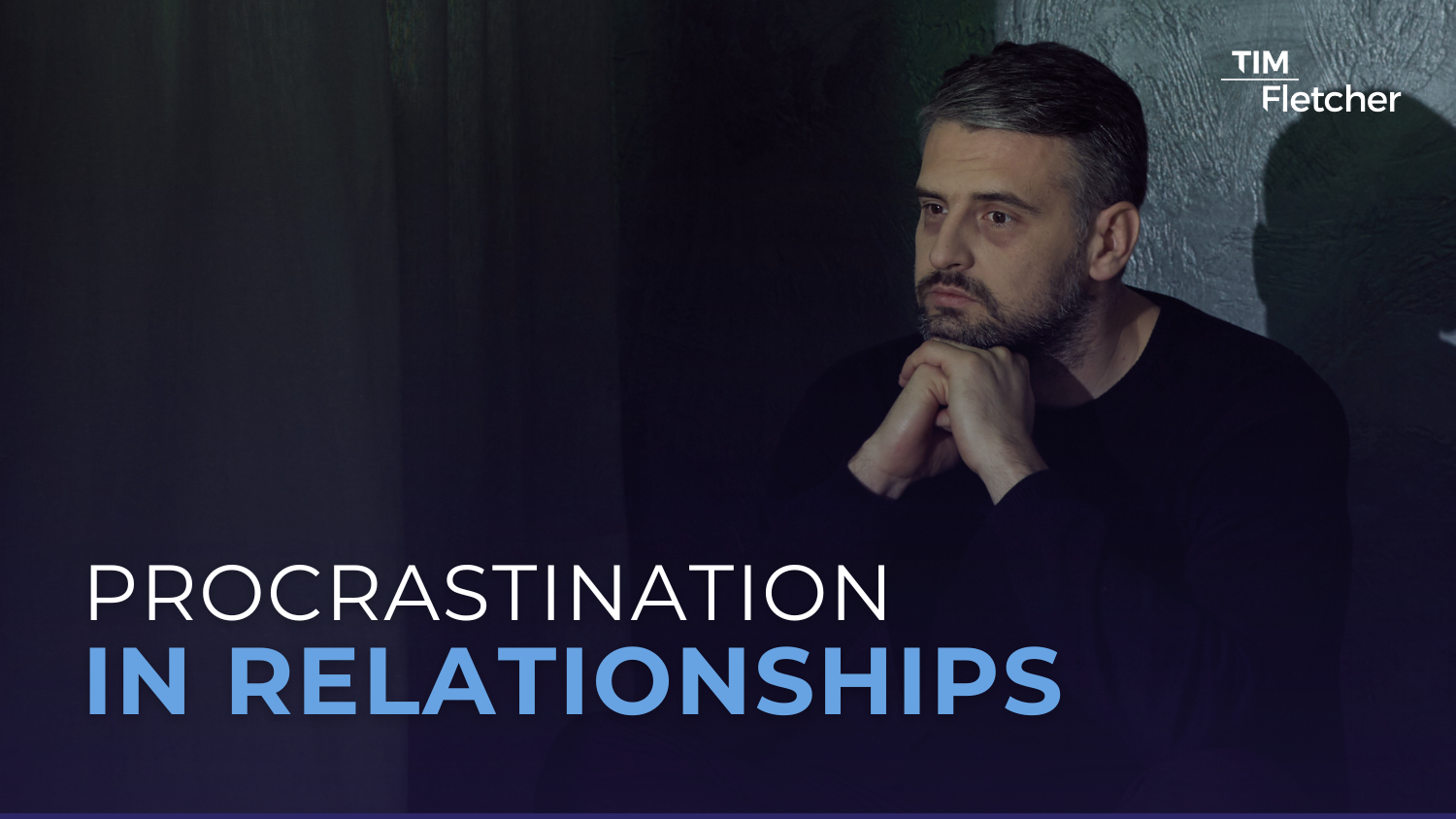Procrastination in Relationships
From Avoidance to Connection
Procrastination in relationships isn’t laziness. It’s a trauma response. When emotional expression was punished, conflict meant abandonment, or silence felt safer than honesty, closeness came to feel dangerous. As adults, this can look like avoiding calls, delaying hard conversations, or retreating until distance replaces connection.
In this course, you will explore where relational procrastination began, uncover the shame-based beliefs that keep you stuck, and learn how to shift from fear-driven avoidance to honest connection. Through Jonah’s story, reflection exercises, and step-by-step practices, you’ll begin to recognize your triggers, validate your younger self, and practice showing up more fully in your relationships.
Get Access with the EVERGREEN Membership
Get unlimited access to Tim Fletcher Co’s Evergreen library for just $30 per month, or $300 per year. With six new self-development courses added every month, you’ll always have fresh, practical tools to support your growth in areas like trauma recovery, boundaries, relationships, and personal transformation. Learn at your own pace, revisit lessons anytime, and build lasting change with guidance that’s both compassionate and deeply practical. See more details here.
*All prices are in Canadian Dollars.
Course Curriculum
-
Welcome Video
Introduction
-
Avoidance in relationships often begins in childhood when needs were met with neglect, rejection, or punishment. This lesson helps you trace relational procrastination back to its roots, understand it as a survival strategy, and begin reframing it with compassion.
Lesson • Journal • Video
-
When connection feels risky, the nervous system relies on shame-driven beliefs like “I’ll mess this up” or “They’ll leave.” In this module, you’ll uncover those hidden messages, see how they shape current patterns, and practice new ways of responding with honesty and self-trust.
Lesson • Journal • Video
-
Changing old relational patterns starts small, with presence, not perfection. This lesson offers practical steps for choosing connection in manageable ways, interrupting avoidance, and building trust through consistency and compassion.
Lesson • Journal • Video
-
This section provides books, talks, courses, poems, music, and therapeutic practices that expand on the course themes. From attachment theory to somatic healing, these resources support deeper understanding of relational patterns and offer practical tools for creating safety, connection, and resilience.
This course is included in the Procrastination and Complex Trauma bundle.
Save over 70% when you purchase all 7 Procrastination + Complex Trauma courses together.


















